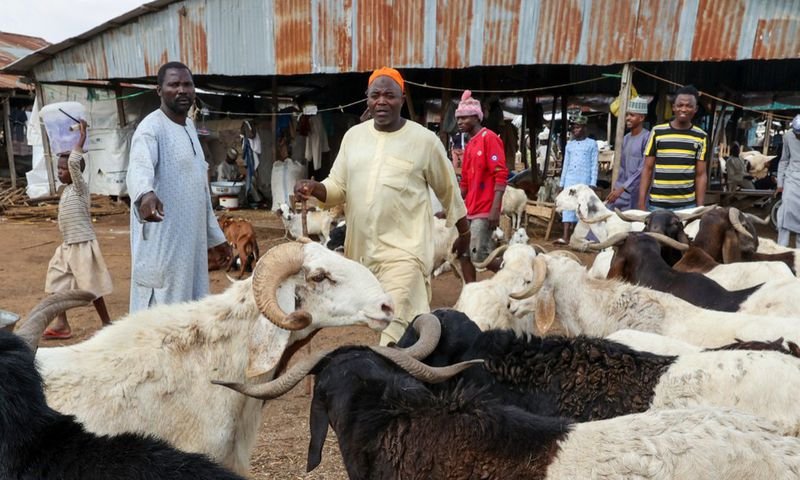LESS than 12 hours to Eid-Al-Kabir nationwide, the prices of rams have surged by an average of 100 percent across the country.
Traders and farmers have attributed the sharp rise in ram prices to the surge in demand and supply chain disruptions caused by the Niger government’s export ban on livestock to curb surging domestic prices.
Africa’s most populous nation imports the bulk of its livestock from Niger, Mali and Chad owing to the worsening insecurity that has hindered new investments in the sector locally.
“The upcoming Sallah celebration and the export ban enforced by Niger are the main factors driving up ram and cow prices,” said Dahiru Nuhu, a trader at Kano Duga ram market.
He explained that Niger accounts for a larger percent of rams and cows imported into the country than any other neighbouring country.
“We started seeing a gradual increase in prices of rams and cows in March when the Niger export ban was enforced,” he said, noting that the surge became rapid as Sallah approached.
Our surveyed ram markets in Kano, Katsina, Abuj and Lagos and found that they sell between N150,000 and N850,000, depending on their sizes and health conditions.
A big ram sells for an average of N700,000 as against N350,000 in January, indicating a 100 percent price rise on a year-to-date basis.
A small-sized ram now sells for an average of N250,000 as against N165,000 in January, showing a 52 percent increase in price.
A medium-sized ram sells for N450,000 – N500,000 each as against N250,000 – N300,000 in January.
Sani NA Makole, a trader at Mile 12 Ram Market, noted that ram prices usually surge during the Sallah celebrations as Muslim faithful traditionally use them during the season.
He noted that this year’s surge has resulted from a combination of issues bedeviling the domestic livestock industry. Apart from the high demand and Niger ban, Ganiu said worsening insecurity and high logistic costs are also impacting prices.
“Insecurity has made several of our herders migrate to neighbouring countries. This has reduced our local livestock production,” he said.
“The situation has also made us import more to meet demand since local supply is dwindling,” he added.
Traders have reported low ram sales ahead of the celebration compared to previous years.
Traders across the major markets in Lagos told BusinessDay that tough economic realities have shrunk consumers’ purchasing power and dampened the enthusiasm that comes with the celebration.
Buoyed by rising food costs, Nigeria’s inflation rate quickened to 34.8 percent in December 2024, the highest in three decades, before declining to 23.7 percent in April after the country rebased its consumer purchase index.
Despite inflation increasing slightly to 24 percent, prices are still rising, but at a slower pace. The rise in inflation has eroded households’ incomes and savings, amplifying the citizens’ cost-of-living crisis.
During a visit to the market by BusinessDay’s correspondents, traders said they have been witnessing low patronage. They said some of their customers often end up not buying after haggling or simply buy a few other items due to the hike in ram prices.
Muhammed Idris, a trader at Kaduna Ram Market, said he has never witnessed such a low turnout of customers, especially during this period.
He said he had brought 150 rams of different sizes from Sokoto to Kaduna State since last month but had only sold 30.
“It’s been two weeks since I brought these rams you see here, but when you tell many customers the prices, they just go without returning,” he said.
“In previous years, I would have sold everything. But you can see I haven’t even sold half of what I brought to Lagos, and Sallah is a few days away,” he noted.







